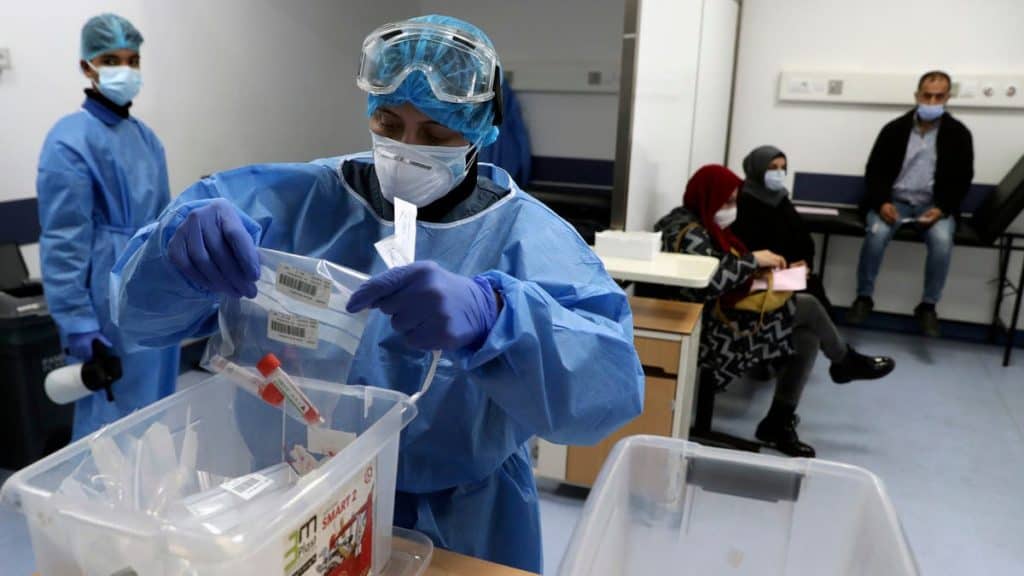Kidney Dialysis Maybe Postponed Due To Supply Shortages In Lebanon Hospitals
Nikki Attkisson | Last Updated : June 12, 2021Hospitals in Lebanon warned Thursday that owing to acute supply shortages, they may be forced to cease renal dialysis next week, the latest in Lebanon’s escalating crisis and deteriorating health system.
Kidney Dialysis Maybe Postponed Due To Supply Shortages In Lebanon Hospitals
Lebanon is experiencing an unparalleled economic and financial crisis, with the local currency collapsing and banks restricting withdrawals and money transfers. As the Central Bank’s foreign currency reserves deplete, the country has seen shortages of medications, fuel, and other essential supplies, with huge lineups forming outside gas stations.

The once-thriving healthcare system has taken the brunt of the damage, with some hospitals suspending elective surgery, laboratories running out of test kits, and doctors warning in recent days that they may run out of anesthetic for procedures.
Doctors stated on Thursday that they may be forced to cancel renal dialysis next, blaming shortages on a subsidy dispute between medical importers and the Central Bank.
It’s a crime against humanity, according to George Ghanem, chief medical officer of the Lebanese American University Medical Center – Rizk Hospital, who made a statement on behalf of the physicians.
Hospitals and the medical industry cannot continue in this manner. He stated that they are nearing tough days when they would no longer be able to accept patients.
Ghanem has written to the United Nations and the World Health Organization, pleading with them to intervene by delivering help directly to hospitals or the Red Cross, bypassing the Lebanese government and Central Bank.
Otherwise, he warned, there will be patients who will not get dialysis in future days, patients who will not be diagnosed, and patients who will not be operated on. He stated that there were already 350 brands of essential drugs in low supply.
Lebanon’s crisis, which is the result of decades of corruption and mismanagement by an entrenched political elite, has pushed more than half of the people into poverty and led the local legal tender to lose more than eight-five percent of its value. The World Bank warned on Tuesday that Lebanon’s crisis is one of the worst in the world’s history.
The situation has exacerbated significantly as a result of lawmakers’ failure to agree on a new administration in the face of the country’s enormous issues. Outgoing Prime Minister Hassan Diab’s Cabinet resigned days after a catastrophic explosion at Beirut’s port in August, leaving the country without a fully functional government.
Locked in a power battle, Lebanon’s President Michel Aoun and Prime Minister-designate Saad Hariri continue to blame each other as the country falls further into issues that get more intractable by the day.
With no end in sight, the crisis represents the most serious danger to Lebanon’s stability since the 1975-1990 civil war.
People are on the verge of a major disaster, said Hala Kilani, the doctor in charge of the dialysis department at LAUMC-Rizk Hospital. She stated that medical teams were trying every day to get the requisite quantities of filters to continue dialysis and blood testing for patients. Finding needles to give blood to dialysis patients, who are frequently anemic, is a challenge.
She told The Associated Press that they had to phone one million pharmacies simply to find one or two needles. This is quite risky.
Issam Yassin, a 40-year-old dialysis patient, said he was speechless. It is really difficult, and if it continues, it will be disastrous.
There is no option for them if dialysis is not available, he explained.
Kilani, the doctor, claims that the present situation is worse than it was during Lebanon’s civil war from 1975 to 1990.
People have never been in the predicament they are in now, Kilani remarked. The patients will perish if they are unable to obtain the necessary supplies.
With over 15 years as a practicing journalist, Nikki Attkisson found herself at Powdersville Post now after working at several other publications. She is an award-winning journalist with an entrepreneurial spirit and worked as a journalist covering technology, innovation, environmental issues, politics, health etc. Nikki Attkisson has also worked on product development, content strategy, and editorial management for numerous media companies. She began her career at local news stations and worked as a reporter in national newspapers.